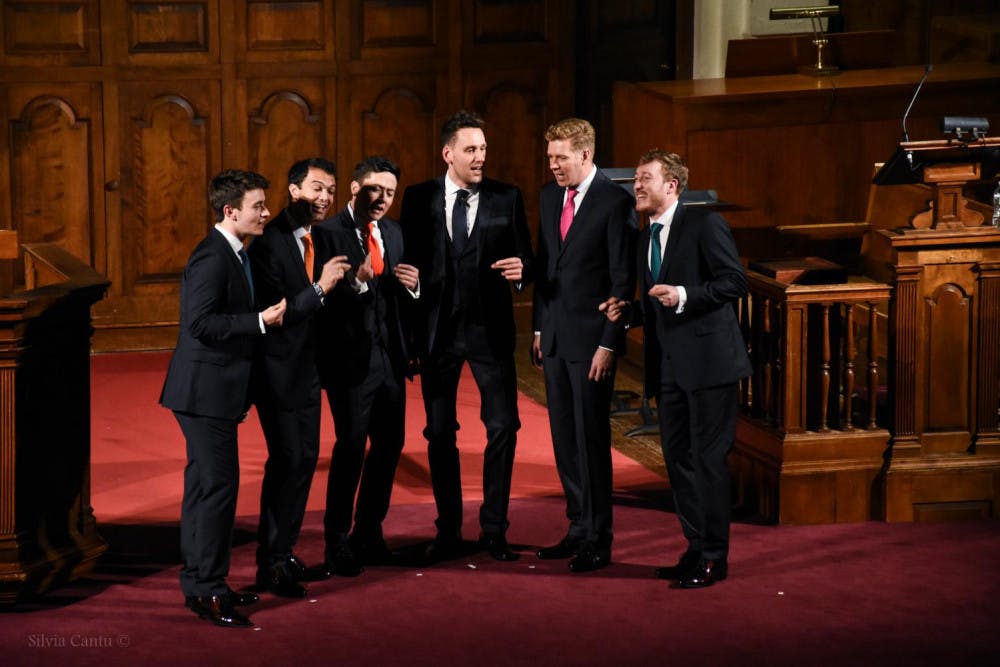On Friday Nov. 3 in Mead Memorial Chapel, the world-famous a cappella group, The King’s Singers, returned to Middlebury after their first performance in 2015. Marking the beginning of their 50th anniversary world tour, the Grammy Award-winning group filled the chapel with beautiful harmonies and melodies to old and new songs.
In 1968, six choral scholars and recent graduates of King’s College in Cambridge formed the King’s Singers. The group consisted of two counter tenors, one tenor, two baritones and one bass. Throughout the years the singers themselves have changed, but these roles have remained the same.
After building up a fan base across the United Kingdom and around the world, the group began performing on television shows such as “The Tonight Show with Johnny Carson” and in concert venues such as the Sydney Opera House and Carnegie Hall. They have received two Grammy Awards for their recorded albums and one Emmy Award. Since their founding, they have embarked on many world tours to bring their love of music across the globe.
To celebrate their 50 years as a vocal group, the Singers began a grand world tour that ranges from across the United States all the way to New Zealand.
Dubbing this anniversary year their “GOLD” season, all work produced by the group in this year including their book, album and tour “[celebrates] the amazing musical heritage of The King’s Singers, and also looks at the bright future of vocal music in all of its forms” according to their website.
The concert in Mead took the audience through time with diverse choices of music. The group not only sang in English, but also devoted an entire selection to French songs by Francis Poulenc. The audience reveled in “The Prayer of King Henry VI” by Henry Ley and the song “M.L.K.” by U2. The group chose this song to pay homage to Martin Luther King, Jr., who was killed the year the group was founded.
A major goal for the group is to elaborate on global unity through music. Part of the group’s opening selection was “We Are” by Bob Chilcott, which preaches that, “we are more alike than we are unalike.” In our national and local state of affairs, hearing the upbeat and energetic tune from foreigners brought an air of happiness and inclusivity to the performance. The focus of unity during an a cappella performance functions in many ways because the art form itself is based on the perfect unison and equal distribution of voices in order to create a beautiful rendition of music for all to enjoy.
The Singers also emphasize the importance of education and community outreach with their performances. After their concert, they encouraged all members of the audience to come up and their their thoughts about their music.
In a blog post on their website talking about their Middlebury concert, baritone Christopher Gabbitas detailed how the group’s focus on education “has opened up a whole new avenue of outreach that allows us to connect with singers young and old alike, to further our message that everyone has a voice and should use it as much as possible!”
A broad range of ages came out to support the performance. Members of Middlebury’s own a cappella groups were in attendance, as well as young children and adults in the community.
A love of music brought together all these groups of people, demonstrating the harmonies that it can create across backgrounds.




